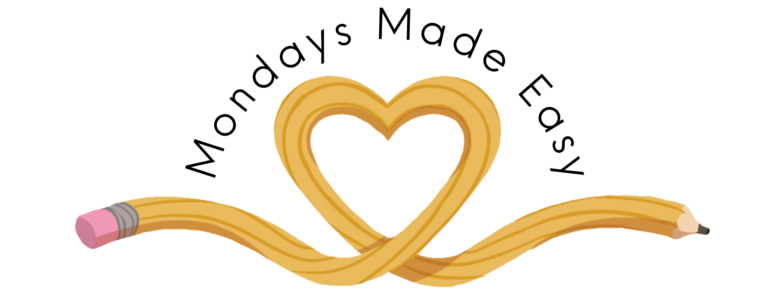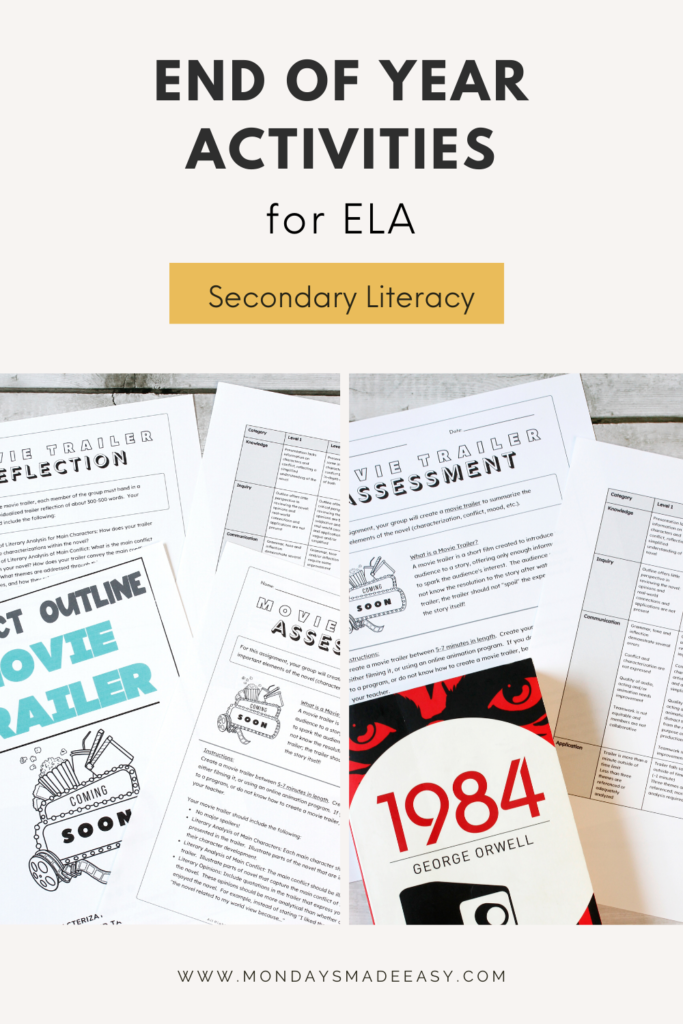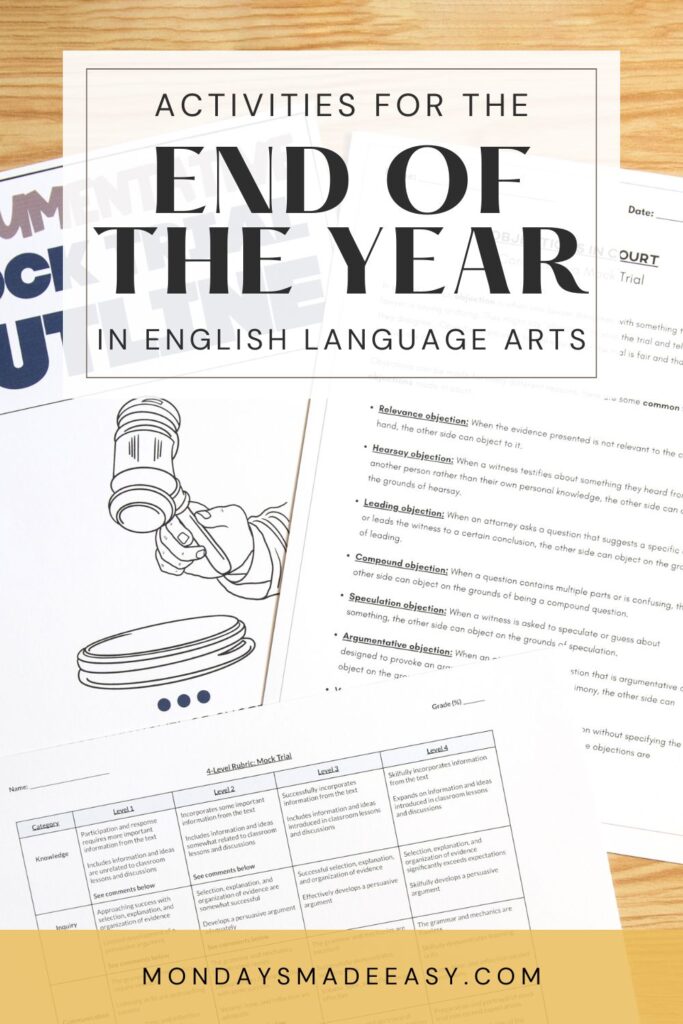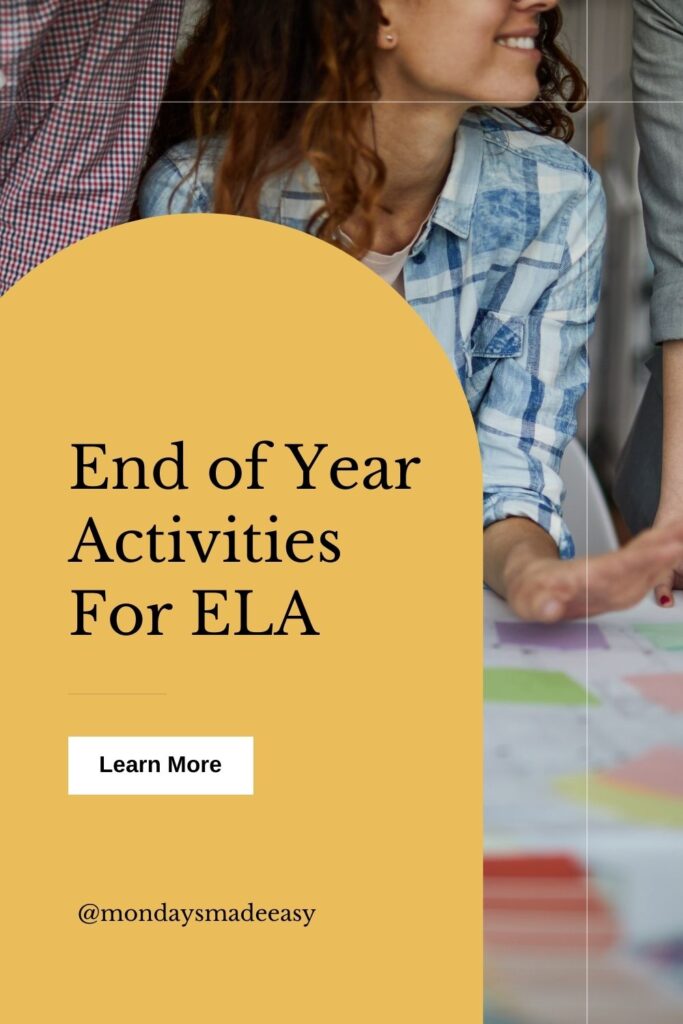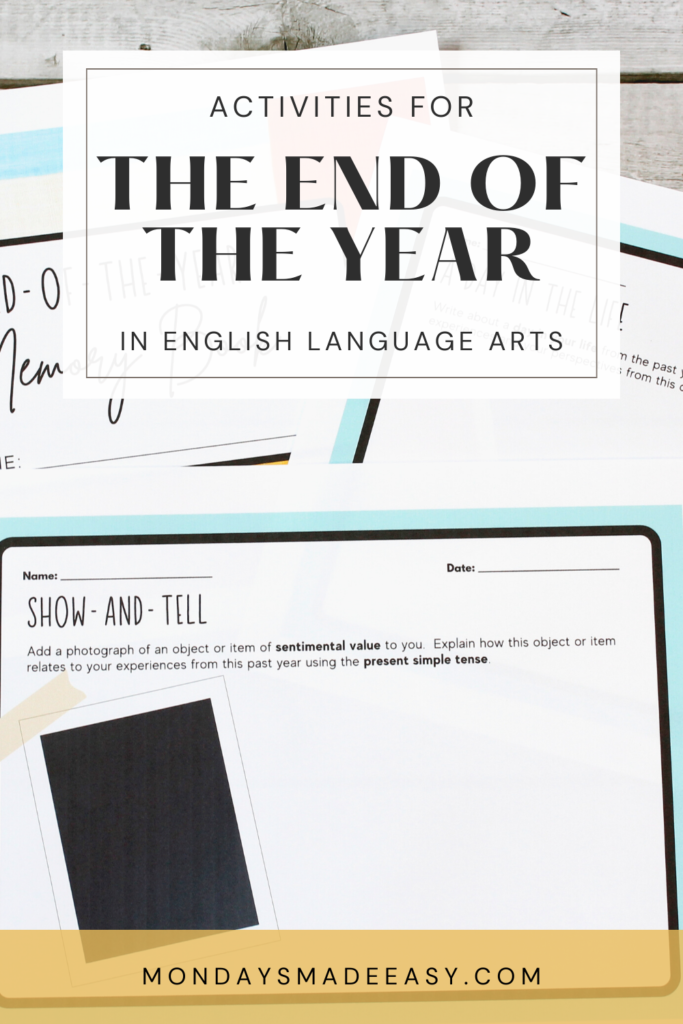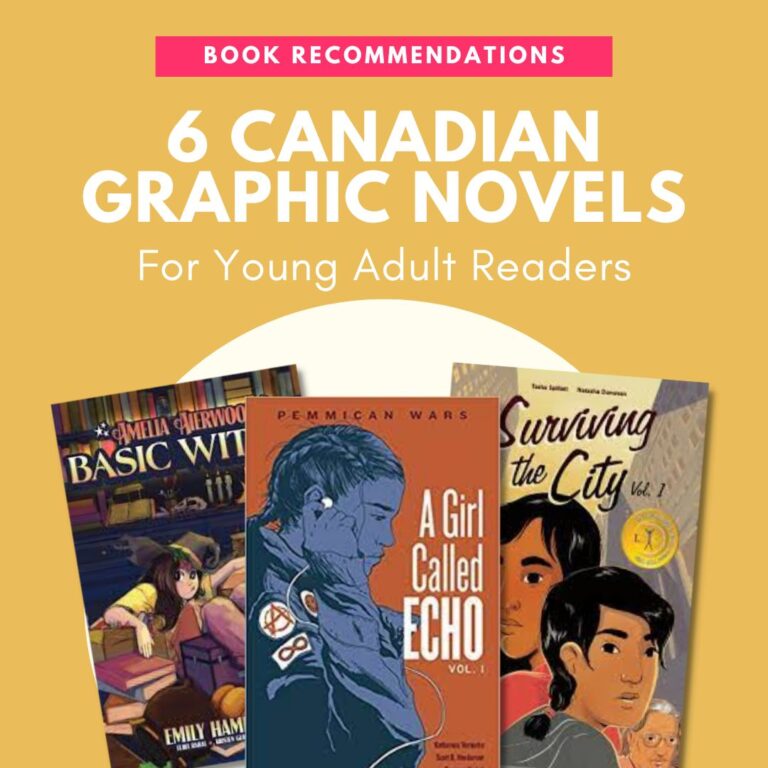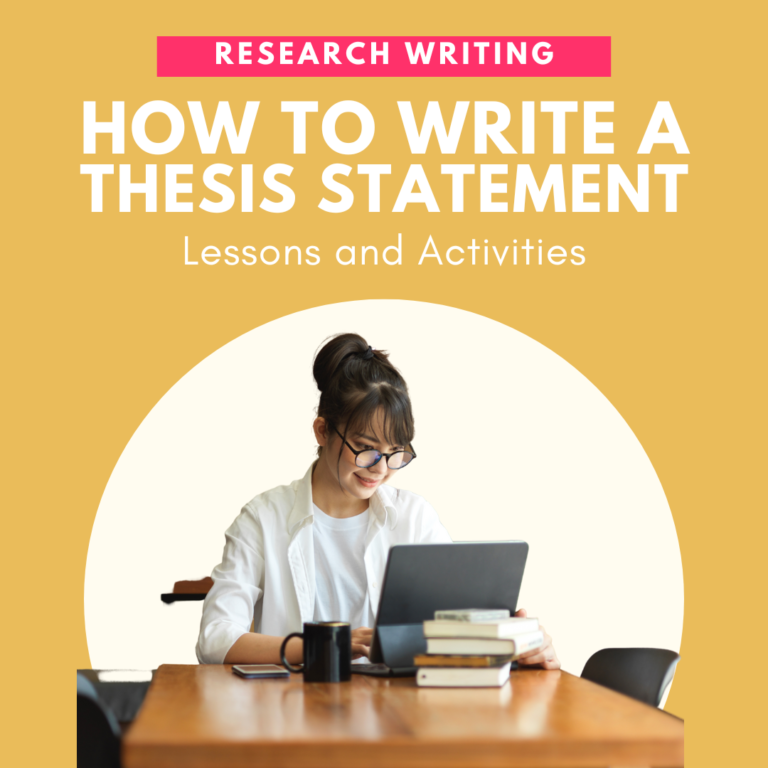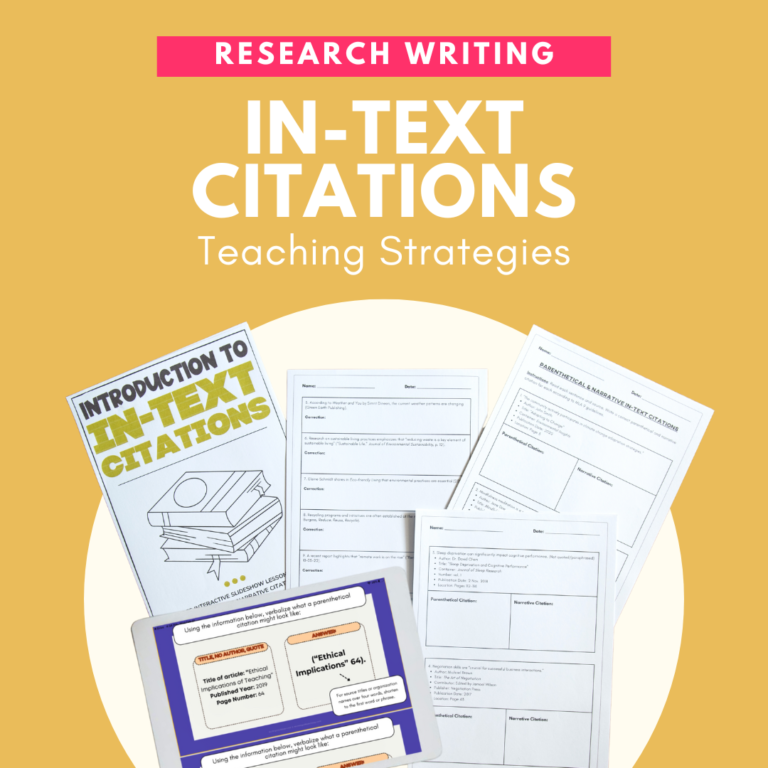Your students are tired, and you need some end of the year activities to help them cross the finish line. You’ve finished standardized testing and have met most of your curriculum expectations for the year. It might feel like your class is ready to throw in the towel! Fortunately, with the right activities, you can end the year on a positive note.
This blog post shares a few student favourite end of the year activities for English Language Arts, including essay alternatives, reflective writing prompts, and end-of-year projects. With the help of these end of the year activities, you’ll be sure to make a lasting impression on your students.
What are some fun English Language Arts assignments for the end of the year?
With only a few weeks left of the school year, there’s no shame in making “fun” the theme of the season. After a long and rigorous year, you and your students deserve it! Here are some end of the year activities that are great for English Language Arts:
Book Trailer Projects
If you want your end of the year activities to be fun but still want to engage students with your curriculum standards, you can assign them a book trailer project. This project is great for English Language Arts students because it will have them revisit novels and short stories they have studied during their school year. It is also a highly engaging assignment because it uses video as the medium for communication. As you know, video is a medium that our students’ generation knows and loves!
Book trailers inspire extracurricular reading and offer students a unique way to move past summaries as they capture the tone, mood, conflict, and major themes of any story.
To learn more about how to assign book trailers and why they serve as a great alternative assessment, check out this blog post.
Real-World Resources
This end-of-the-year assignment is great for secondary English Language Arts. It’s also a student favourite! Real-world resources serve as an extension of research papers, allowing students to synthesize and publish their research meaningfully through authentic assessment.
Authentic assessments are designed to measure a student’s ability to apply their knowledge and skills in real-world, meaningful contexts. They often require students to demonstrate understanding by completing tasks or projects that are similar to what they might encounter in their future careers or in practical situations.
In the case of this real-world resource assignment, students are taking academic research and applying it to create practical, real-world documents. By creating brochures, infographics, documentaries, and other forms of “real-world resources,” students can share their research with the school community.
Book Reviews
Book reviews are another form of authentic learning and make great end of the year activities. This is because students will have the opportunity to model real-world literary critics. With the option to choose from a vlog-style video review or a written blog post, students have a choice in how they express their understanding and critique of the book. This differentiated assessment is therefore both engaging and adaptable to different learning styles.
Similar to book trailers, book reviews can help you save time grading. This is because students can have the opportunity to share their reviews with their classmates. As they present, you have the opportunity to grade on the spot!
Mock Trials
Looking for end of the year activities that support essay writing? Hosting a mock trial is a great alternative to an argumentative essay. This is because students will use the same skills practiced in argumentative essay writing to develop a persuasive court case.
You can guide students to develop a deeper understanding of the overarching themes and underlying messages of a novel or short story by taking a main character to trial. With the integrity of their defendant at stake, students are bound to get invested in this activity! If it’s suitable for your school demographic, you can even request that students attend the trial in formal attire.
Mock trials don’t need to be daunting, and they’re another great pick if you want to save time and assess students on the spot. This assignment outline has everything you need to successfully lead a mock trial. If you want to learn more about the mock trial process or are curious about which literary pairings work best for a mock trial, check out this blog post.
How can I make my ELA class more fun?
If you teach middle school or high school, you’re probably all too familiar with that stagnant period between report card season and the end of the year. The grades are in, but the show must go on. It can feel a bit like we’re expected to put on a bit of a song and dance during this time of year. If you’re wondering how to make these days a bit more meaningful, here are a few fun end of the year activities to try!
Solving a Classroom Mystery
Transform your end of the year into a thrilling adventure with this solving a mystery game! Students can explore “the Case of the Lost Manuscript” to make inferences and solve the mystery.
This activity teaches students critical thinking, inferencing, and problem-solving skills as they analyze clues, evaluate evidence, and draw conclusions to solve the mystery at hand. Students will explore the case at hand in order to develop a presentation outlining which suspect they believe to be guilty of stealing the missing manuscript.
Review Games
It’s no secret that gamification is the ultimate hack for making your classroom more fun. While students may no longer be motivated by the prospect of a good grade, you can still engage them through some friendly competition!
One student favourite is the viral game 4 Pics 1 Word. This game is perfect for reinforcing key concepts, vocabulary, and topics from your curriculum in an exciting and memorable way. You can tailor the game to fit any subject or topic by using this customizable template. This pre-made game slideshow also includes common English Language Arts concepts to quiz your students!
Plan a Vacation
For cross-curricular end of the year activities, you can have students plan a vacation or day-trip for the summer. This activity can involve them exploring local or regional attractions and writing in a variety of forms. Students will research about culture, geography, politics, and current events to demonstrate their understanding of various essential writing skills.
This project-based learning writing assignment includes four different writing tasks that will invite students to explore the world without leaving the classroom. Geared towards developing a variety of literacy skills, this project is perfect for enhancing essential literacy in a dynamic way.
What can we do on the last day of school?
The last day of school is a particularly special time. Just like every lesson ends with a conclusion, this day marks the culmination of a year’s worth of learning, growth, and shared experiences. Here are some end of the year activities to make the last day of school memorable:
End of the Year Reflection Prompts
An end of the year memory book is a great way to incorporate a number of school-related reflection prompts. It can also include writing prompts that encourage mindful reflection and social-emotional learning. This memory book template includes several writing prompts to consider challenges that students have overcome or aspects of the year in which they’d like to let go. Additionally, it supports your English Language Arts curriculum by prompting students to reflect on the novels and short stories that they read in class.
If you’re looking to foster a love of literature in your end of the year activities, a literary quotes reflection journal is another inspiring option. This activity will prompt close reading and facilitate personal and literary reflection through the exploration of timeless quotes from literature. It includes 24 powerful quotes that appeal to popular teenage themes and interests. Each quote was selected to represent both classic and contemporary literature while featuring diverse authors, including Toni Morrison, Paulo Coehlo, J.R.R. Tolkien, Sandra Cisneros, Ocean Vuong, and more!
Another great end of the year writing prompt involves future writing. Future writing encourages students to imagine their lives in the future and write to an audience set during a particular timeframe. Timeframes can range from a year, to five years, to after high school – the options are limitless! For some added fun, you can collect these pieces and give them back to students at the end of the year.
Classroom Evaluation Writing Prompts
It might seem daunting, but asking students to evaluate their experience in your classroom is worthwhile. Here are some writing prompts that you can use as end of the year activities to ask for student feedback:
“If you had to prepare students to take this course next year, what would you encourage them to do? How would you prepare them, and on which areas of the curriculum would you encourage them to focus?”
“Did you have any expectations when you began this course? What were they? Did this course meet your expectations?”
“What was the most challenging aspect of this course? How did you approach this challenge? If you had the opportunity to face this challenge again, would you try a different approach?”
“Which skill from this course do you think you will find the most useful in your future learning? Which skill is most useful for life beyond school?”
“Your principal has told you that you have been selected for an award for the end-of-the-year celebration. For what reason do you believe you are being rewarded? What skill or area in your academics do you think your principal is acknowledging?”
Ending the Year on a Positive Note
The last few weeks of school can certainly be a tough time to teach. Thankfully, there are a ton of end of the year activities to help us cross the finish line. I hope these end of the year activities have helped you develop some memorable and fun moments for your students. If you plan one of these end-of-the-year reflections, activities, or assignments, make sure to tag me on Instagram! I love seeing these ideas in action.
[instagram-feed]